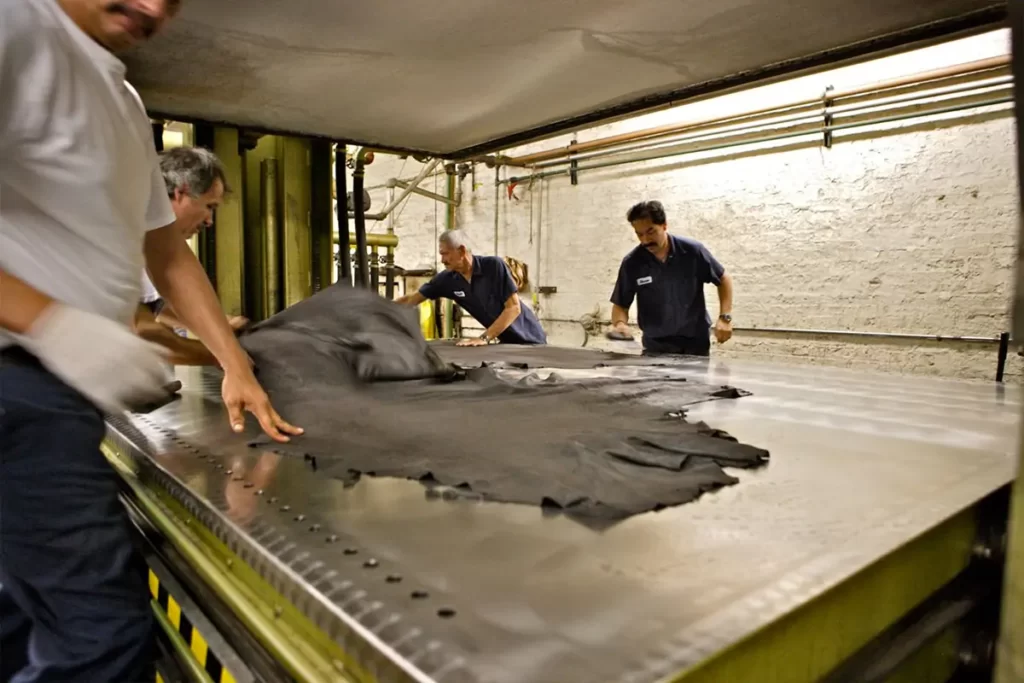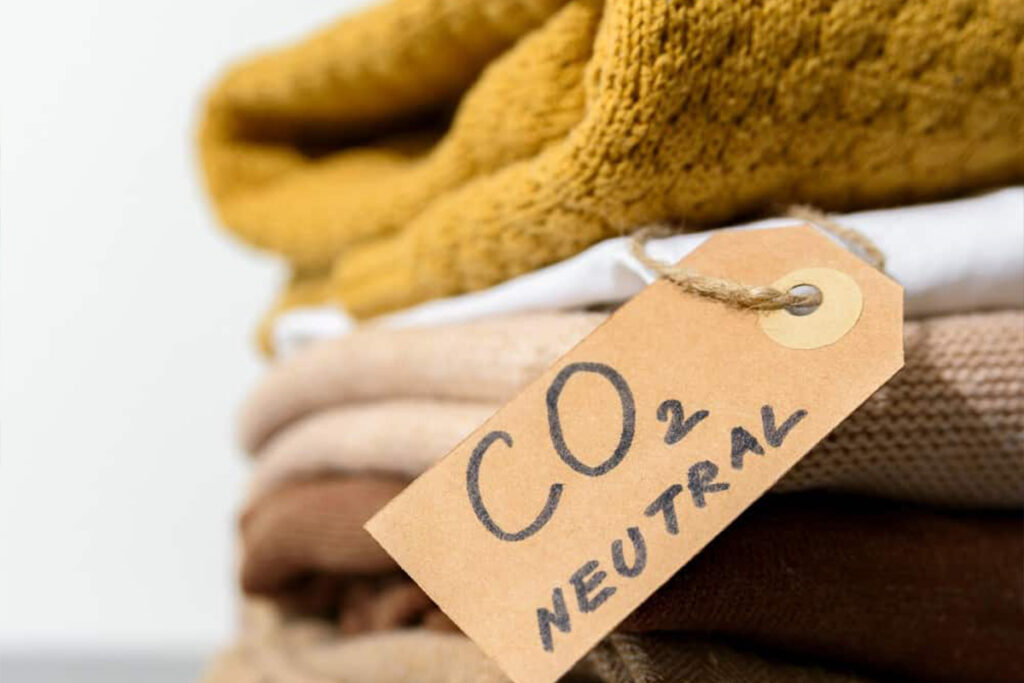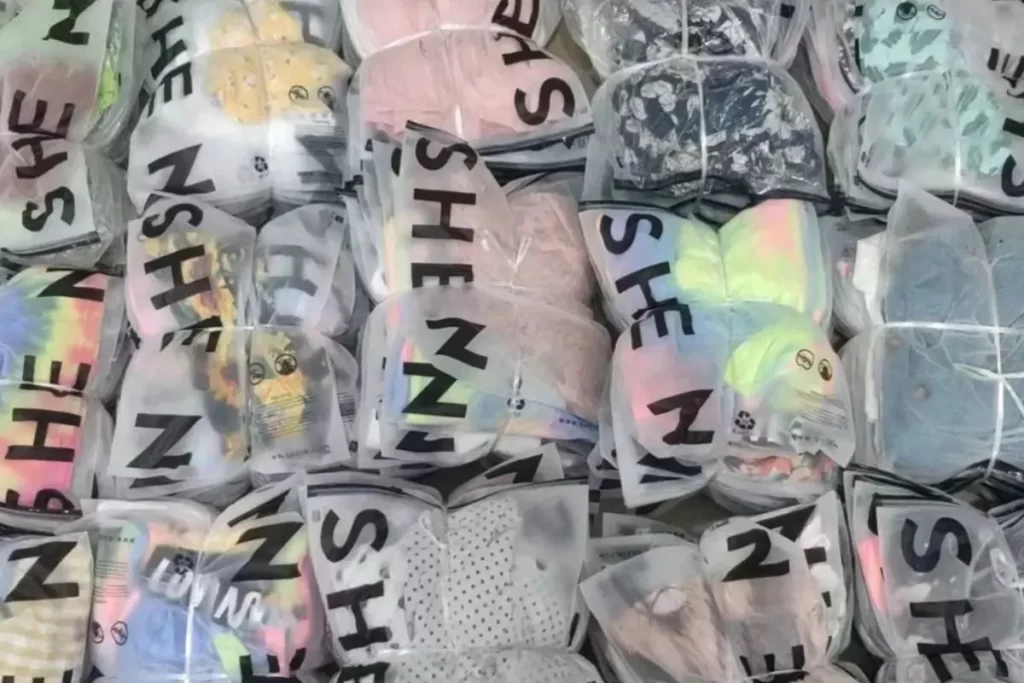Environmental consciousness is an absolute necessity in the modern world. The fashion giant Shein has publicly pledged to lessen the ecological toll of fast fashion. But do these initiatives match their actual business conduct?
In this article, we will examine Shein’s goals for sustainability, their openness about environmental practices, their attempts to reduce waste, and their responsible sourcing.
Are these promises just marketing strategies or real strides toward a greener future? Let’s delve into the truth behind Shein’s environmental endeavors.
An Introduction To Fast Fashion
“Fast Fashion” is a term that has become increasingly significant in discussions about sustainability, environmental consciousness, and the fashion industry. It refers to cheaply produced and sold garments, mimicking the latest trends and quickly distributing through stores to capitalize on current fashion trends.

The fast fashion model allows retailers to stock large quantities of various products, offering customers more fashion choices and product diversity at a lower cost. This is how the fast fashion model got its name: clothing is designed, manufactured, distributed, and marketed rapidly.
The Environmental Impact of Fast Fashion
Before targeting Shein directly, it’s crucial to understand the broader landscape. Fast fashion is notorious for its environmental toll, including:
Water Consumption
Fast fashion has a detrimental effect on our environment due to its extensive water usage. The fashion industry is the second-largest consumer of water globally, with astonishing figures like 700 gallons needed to produce a single cotton shirt and a staggering 2000 gallons for a pair of jeans.

Moreover, the dyeing process of textiles, which often involves discarding leftover dye water into natural water bodies, is one of the largest contributors to water pollution worldwide.
Microplastics
Another alarming issue associated with fast fashion is the contribution to environmental pollution through the use of synthetic fibers like nylon, acrylic, and polyester.
When washed, these fibers take hundreds of years to break down and release microplastics – tiny, non-biodegradable plastic particles – into our water systems.
Shockingly, a 2017 report by the International Union for Conservation of Nature (IUCN) states that about 35% of oceanic microplastics come from washing synthetic fabrics such as polyester.
Rapid Consumption and Waste
The rise of fast fashion has led to a global surge in clothing consumption, with over 80 billion new items purchased annually. This marks a 400% increase from just two decades ago.
As a result, the average American now generates a staggering 82 pounds of textile waste each year. This excessive waste significantly challenges our environment and waste management systems.
Leather Production
Leather production, often associated with the fashion industry, is also a significant contributor to environmental degradation. The tanning process, known for its use of non-biodegradable chemicals like mineral salts, formaldehyde, coal tar derivatives, various oils, and dyes, contaminates water sources.

Moreover, leather production demands significant amounts of feed, land, water, and fossil fuels for livestock rearing, further exacerbating the environmental impact.
Energy Consumption
Fast fashion’s energy-intensive processes contribute to environmental damage as well. The conversion of plastic fibers into textiles consumes substantial amounts of petroleum and releases volatile particulate matter and acids, such as hydrogen chloride.
Additionally, cotton production, a common material in fast fashion items, is not environmentally friendly due to its heavy reliance on harmful pesticides, which pose health risks to farmers and impact ecosystems.
SHEIN’s Environmental Initiatives
SHEIN has publicly announced plans to mitigate the environmental impact of fast fashion. They have not remained oblivious to the aforementioned concerns, and they’ve taken steps to address them:
Transparency in Environmental Practices
SHEIN has enhanced transparency about its environmental practices by sharing information about its sustainability projects and progress through its website and annual reports.
Sustainable Goals and Commitments
SHEIN is committed to reducing its environmental impact and promoting sustainable fashion. They have set targets to reduce waste, enhance energy efficiency, and incorporate more sustainable products to achieve this.
Waste Reduction and Carbon Emissions
SHEIN has launched several programs aimed at reducing its environmental impact. These include recycling initiatives, optimizing packaging to save materials, and exploring energy-efficient operational procedures to lower carbon emissions.

Supply Chain Management and Responsible Sourcing
SHEIN prioritizes ethical and sustainable practices in its procurement process by working closely with its suppliers. They commit to partnering only with suppliers who comply with labor and environmental regulations.
While recognizing the efforts made to reduce environmental impact is important, verifying the effectiveness and reliability of the company’s initiatives through external verification and continuous monitoring of efforts is equally crucial.
Analyzing Shein’s Efforts Towards Sustainability and Environmental Impact
The company’s sustainability initiatives and environmental impact have faced criticism from customers and environmental groups alike. However, taking a closer look, specific gaps and concerns arise in Shein’s approach:
Sustainability Efforts
● Lack of Transparency
One of the key issues raised against Shein is their lack of transparency and inadequate reporting on their sustainability initiatives.
The absence of comprehensive information regarding the company’s sustainability practices makes it challenging to assess their impact and set appropriate targets for improvement.
● Limited Sustainable Collections
Furthermore, while Shein has introduced a few sustainable designs, the majority of its products are still marketed as fast fashion.

This indicates a lack of significant commitment to implementing a more sustainable business strategy, with limited sustainable choices available to customers.
● Recycling Programs
Shein has introduced a recycling initiative called “Shein-Reuse” in certain areas, encouraging consumers to return any unwanted clothing to the brand. However, this program’s exact environmental impact and recycling rate remain unknown.

Impact on the Environment
● Fast Fashion
Shein’s fast fashion business strategy, characterized by quick turnaround times and frequent product releases, promotes excessive consumption and leads to textile waste.
The fashion industry is known for its excessive water usage, chemical pollution, and greenhouse gas emissions, all of which significantly negatively impact the environment.
● Production Procedures
Due to the large number of environmental policies followed by Shein, it becomes challenging to monitor every industrial partner they work with.
Unfortunately, there have been reports of some supplier facilities with subpar waste disposal procedures and conditions resembling those of sweatshops. These reports raise concerns about Shein’s supply chain and its environmental impact.
● Packaging Waste
Shein has faced criticism for excessive packaging and the use of non-recyclable materials. This contributes to increased waste in landfills, negatively impacting the ecosystem.
Critics and Controversies Surrounding Shein
Like many fast-fashion companies, Shein has faced criticism and controversy over its environmental and labor practices. These are:
Environmental Impact
Critics argue that Shein’s business model encourages overconsumption and a throwaway culture. The frequent release of new, discounted products can lead to impulsive buying and a shortened lifespan for clothing items.
Labor Practices
Concerns have been raised about Shein’s labor practices and production processes. There are allegations that some suppliers may not comply with appropriate labor laws, potentially leading to issues such as low wages, poor working conditions, and worker exploitation.

A study by Channel 4 and The I newspaper in the UK reported that Shein employees produce 500 clothing items per day while working seven days a week for as low as $556 a month.
This equates to a pay of just two cents per clothing item. Due to the long working hours, some female workers reportedly have to wash their hair during their lunch break.
Hidden Messages Controversy
In June 2022, videos went viral on social media claiming that garment workers had hidden messages in their products. Reports suggested that a tag’s care instructions included the phrase “need your help.
Shein responded by releasing a TikTok video stating that the criticism was unfounded and that it adhered to strict supplier conduct guidelines prohibiting forced labor.
Transparency Issues
Shein’s labor policies have been questioned due to a lack of transparency. A 2019 investigation revealed that Fashion Nova, a similar fast-fashion company, had violated wage laws by using underpaid workers in its Los Angeles factory. Some employees were reportedly paid as low as $2.77 per hour.
According to Shein’s 2021 Sustainability and Social Impact Report, 66% of the factories and warehouses supplying them operate in a “mediocre” manner, with one to three significant risks at work requiring remedial action. In 12% of the factories, serious violations require immediate attention.
Packaging Practices
Shein’s packaging practices have also been criticized for their environmental impact. Fast fashion retailers often use excessive packaging, including plastic bags and additional wrapping for each clothing item. This leads to more plastic waste.

Additionally, the global transportation of goods results in carbon emissions that add to the inherent environmental impact of each product.
Sustainable Alternatives to Shein
There’s a lot to learn about the business practices of companies like Shein. Being an informed consumer means knowing alternatives. Instead of fast fashion, consider:
Buy Less
This is a simple yet effective strategy. While finding affordable clothing from other companies might be challenging, you can buy fewer clothes if alternative options are beyond your budget.
The unsustainable nature of fast fashion relies on excessive consumption. You can support a slower, more sustainable system by purchasing only what you need instead of frequently buying in bulk.
Buy Secondhand
Buying used clothing is the most eco-friendly way to shop, second only to utilizing what you already own. There are options available for every taste, body type, and budget, from local and online thrift stores to vintage boutiques.

If you want to maximize the use of your existing wardrobe, consider organizing a clothing swap with friends or family.
Buy Small
Regarding sustainability, supporting small businesses is far superior to patronizing large corporations. Consider the energy consumption of your local mom-and-pop store compared to a massive company like Shein.
If local shopping isn’t an option, consider supporting eco-friendly companies online. Even if they’re not local, small businesses use fewer resources.
Ethical Alternatives To SHEIN
The fashion industry is experiencing a surge in demand for ethical and sustainable clothing alternatives, particularly for fast fashion brands like SHEIN. You should look for brands that prioritize ethics alongside style. Now let’s talk about the 7 best ethical alternatives to SHEIN:
1. MGOO Fashion
With 15 years of experience in fashion production, MGOO Fashion Apparel Co., Ltd. helps clothing brands bring their visions to life. If you’re seeking the best apparel and fashion manufacturer, MGOO is worth considering.

MGOO receives SEDEX certification annually and offers a 30-day return policy for their products. In addition, they regularly update their most popular collections, ensuring you stay up-to-date with the latest trends.
Choosing the right partner is crucial in realizing your dream of launching a clothing line – something MGOO understands well.
2. Made Trade

Made Trade is a fair-trade shop that offers contemporary home and wardrobe products ethically and sustainably. Similar to SHEIN, they provide handmade clothing, accessories, and shoes for both men and women.
Transparency and positive global impact are core values for Made Trade, as they carefully curate various ethically produced goods made from natural and sustainable materials. By supporting Made Trade, you can raise ethical standards and create a more beautiful world.
3. Etsy
Etsy is a well-known online marketplace that focuses on home goods, creative materials, and handcrafted or vintage clothing. Comparable to SHEIN, Etsy offers a wide selection of affordable, cozy, stylish, and environmentally responsible clothes.

With numerous independent makers and sellers, you can find unique and ethically produced fashion items. Renowned as a reliable antique retailer, Etsy provides a bustling marketplace for sustainable fashion.
4. La Maison Simons
Fashion designer and retailer La Maison Simons offers affordable and ethical clothing brands similar to SHEIN. Inspired by global trends, they create reasonably priced and environmentally friendly designs.

La Maison Simons upholds strict social and environmental standards, crafting exquisite outfits that blend durability and style seamlessly. Focusing on eco-friendly materials like organic cotton and linen contributes to a more sustainable fashion industry.
5. NA-KD
NA-KD is a top next-generation fashion marketplace specializing in mobile-only online purchasing. They offer fashionable clothing brands like SHEIN at reasonable prices. With their own brand, NA-KD designs a variety of adorable and stylish apparel, accessories, and footwear.

They collaborate with influencers to introduce new collections and have gained significant popularity on social media. NA-KD provides a wide selection of clothing brands at different price ranges, catering to fashion aficionados.
6. Reformation
Reformation, like SHEIN, is a clothing company that produces reasonably priced, eco-friendly apparel. They offer an assortment of fashionable clothing for small to plus sizes. Reformation uses exquisite and environmentally friendly materials to create simple styles that highlight the feminine form.

They are mindful of reducing their impact on both society and the environment. Sustainable materials like recycled cotton, organic cotton, linen, and Tencel lyocell are used in their production process. Additionally, they incorporate recycled and repurposed materials to minimize waste.
7. Everlane
Everlane is an ethical fashion brand that aims to provide gorgeous and contemporary basics without traditional markups. Like SHEIN, you can find excellent, reasonably priced, eco-friendly apparel on their website.

Everlane prioritizes vegan and environmentally friendly materials such as recycled textiles and organic cotton. Their clothing line also includes accessories and knitwear for both men and women, all responsibly made with long-lasting quality in mind.
Everlane is well-known for its extreme transparency, sharing information about its workforce, factories, supply chain, and cost breakdowns for each product.
Conclusion
The problems and complaints about Shein show how complicated the fashion sector is. Environmental concerns, labor practices, and hidden message controversies all raise important questions about the brand’s ethical and social responsibilities.
As consumers, staying informed and making conscious choices that align with our values is essential. By supporting brands that prioritize sustainability and transparency, we can encourage positive change within the industry.

